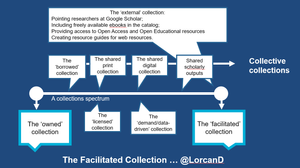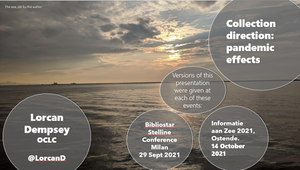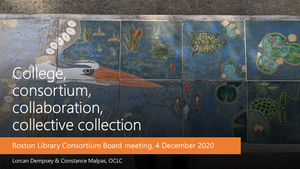Collections of personal papers are important areas of interest for libraries and archives, and for the scholars and students that use them. In the last few weeks, several examples of digital – or digitized – personal papers have come over my horizon:
Cambridge University has just launched The complete works of Charles Darwin online, a project which aims to be completed in 2009.
This site currently contains more than 50,000 searchable text pages and 40,000 images of both publications and handwritten manuscripts. There is also the most comprehensive Darwin bibliography ever published and the largest manuscript catalogue ever assembled. More than 150 ancillary texts are also included, ranging from secondary reference works to contemporary reviews, obituaries, published descriptions of Darwin’s Beagle specimens and important related works for understanding Darwin’s context. [The complete work of Charles Darwin]
This has generated some media attention in the UK.
“It is astonishing to see the notebook that Darwin had in his pocket as he walked around the Galapagos – the scribbled notes that he took as he clambered over the lava,” said Randal Keynes, the great-great-grandson of Charles Darwin. [BBC NEWS | Science/Nature | Charles Darwin’s works go online]
Work is underway to create the Desmond Tutu archive:
Over the next five years, world-leading computer experts from King’s will collaborate with the Universities of Western Cape and Witwatersrand to assemble, catalogue and digitise thousands of documents, film materials, videos, audios, photos and even personal letters into The Desmond Tutu Digital Archive, to be accessed around the world as a free on-line internet resource. The project constitutes the most comprehensive digitisation of a personal archive in the world. [About King’s College London : News and What’s On : King’s College London]
And according to the Sunday TImes, “The National Library of Scotland is to create an archive of the blogs, journals and e-mails of leading Scots, which curators claim are the manuscripts of the 21st century”.
The websites and blogs of leading cultural figures, including writers such as JK Rowling and Alasdair Gray, will become prime exhibits. [National Library to store blogs – Sunday Times – Times Online]
And finally, the British Library notes its support of a conference discussing how to secure archives of UK writes for the nation.
The cultural benefits of retaining the archives of pre-eminent UK authors within the UK for research, educational and creative use are significant and wide-reaching. As well as national collections, regional and university libraries collect papers with local connections and international reputations. The acquisition of significant modern literary papers enhances the reputation of collecting institutions throughout the UK, raises their profile worldwide, and in turn encourages new writing as the nation is seen to value its writers. [Save our written heritage: Making UK writers archives available to future generations]
Now, although it is not stated, one assumes that much of this resource may be available on a flash drive rather than in a box or cabinet.
I note these examples because I have recently come across them; of course there are many others and it will become routine to accept papers in digital form. What is not yet routine though is the processing and management apparatus for such papers, especially as our notion of ‘papers’ extends to include blogs, emails and other documents.



